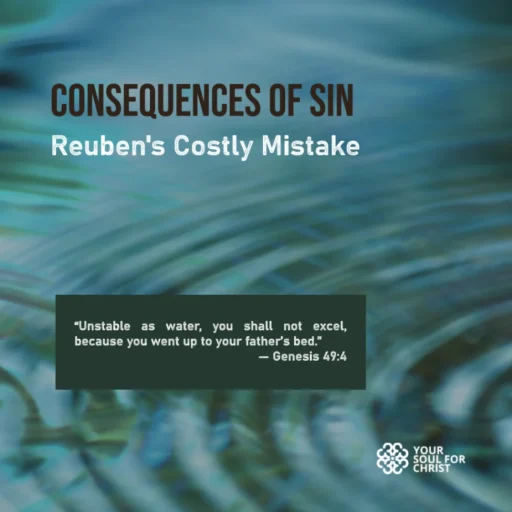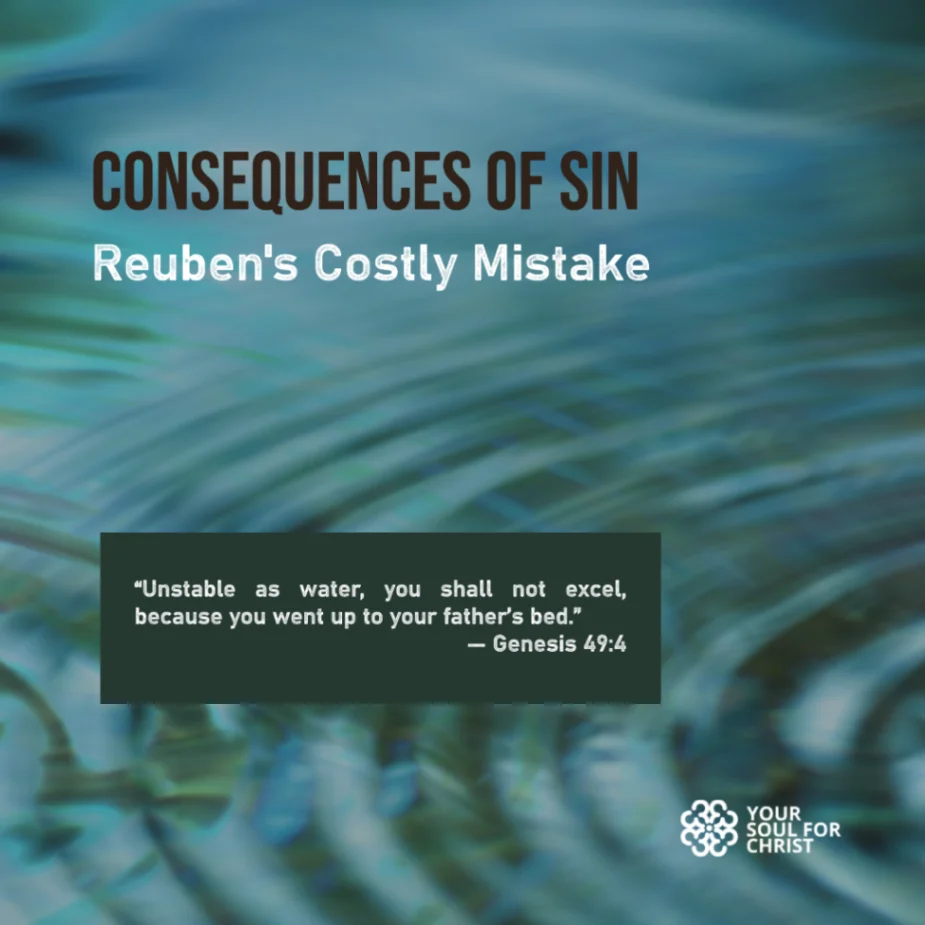Gather together and hear, you sons of Jacob, and listen to Israel your father. Reuben, you are my firstborn, my might and the beginning of my strength, the excellency of dignity and the excellency of power. Unstable as water, you shall not excel, because you went up to your father’s bed; then you defiled it—he went up to my couch.
Genesis 49:2–4 NKJV
This poignant passage captures Jacob’s final words to Reuben, his firstborn, during his blessings to his sons. While Jacob acknowledged Reuben’s potential as a leader and his position of privilege, he condemned his lack of self-control, which led to dishonour and the loss of his rightful inheritance. Reuben’s story serves as a caution for believers, emphasising the profound consequences of sin and the importance of self-discipline.
Reuben was born into a position of great privilege and responsibility. Jacob described him as his might and the beginning of his strength. As the firstborn, Reuben held the promise of inheritance and authority. However, his lack of restraint led to a grave transgression—he defiled his father’s bed by sleeping with Jacob’s concubine. Though this act was not immediately addressed, its impact endured. Years later, Jacob’s rebuke revealed the extent of the consequences: Reuben forfeited the honour and blessings meant for him.
This narrative reminds us that sin, though it may not always result in immediate consequences, inevitably leaves a lasting impact. God’s grace often delays judgment, providing opportunities for repentance and restoration. However, delayed consequences should never be mistaken for approval or escape. Sin disrupts relationships, tarnishes reputations, and diminishes opportunities for influence. Sin disrupts the relationship between believers and God in the same way it did with Reuben and his father. As believers, we must remain vigilant, guarding our hearts against the deceitfulness of sin. Its fleeting pleasures always come at a cost far greater than we anticipate.
Jacob’s description of Reuben’s fate as “unstable as water” underscores the destructive power of unchecked impulses. Water, though vital and dynamic, becomes unstable when it lacks boundaries. Similarly, a life without self-discipline risks being led astray by fleeting desires. This lack of stability can undermine even the greatest potential and squander the most extraordinary grace. Reuben’s downfall calls us to cultivate self-control, a fruit of the Spirit, allowing God to govern our hearts and guide our actions.
As we reflect on Reuben’s story, it challenges us to examine our own lives. Are there areas where unchecked desires threaten to lead us astray? Are we pursuing fleeting pleasures at the expense of lasting honour and obedience to God? While sin carries weighty consequences, God’s mercy offers hope. His grace invites us to repent, realign our hearts with His will, and walk in His ways.
In conclusion, this passage is a solemn reminder of the consequences of unconfessed sin. Yet, it also highlights the power of self-discipline and the hope found in repentance. As believers, we are to live lives of self-control, humility, and obedience. Let us strive to submit our desires to God and embrace the stability that comes from walking in His Spirit. In doing so, we can experience the fullness of His blessings and reflect His faithfulness to the world.
May Reuben’s legacy inspire us to avoid the pitfalls of sin and embrace genuine repentance and ultimately the transformative power of self-control, knowing that God’s grace is sufficient to restore and strengthen us.

